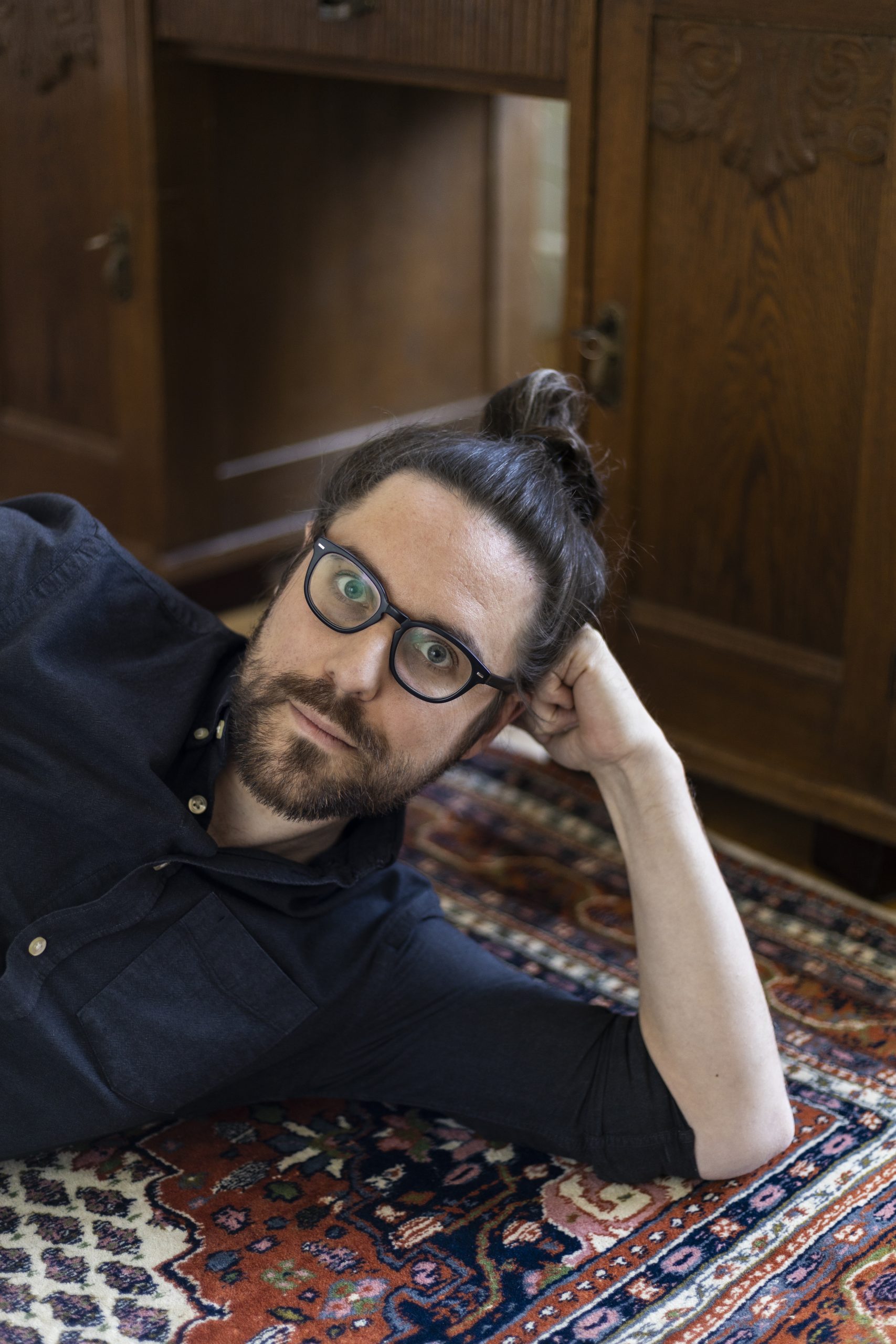‘My grandparents were, like most Germans, Mitläufer: common people who just went with the political flow of their times. They were not creepy Nazi monsters. However, we should not deny that most Germans were part of and served an atrocious regime. This does make them perpetuators. For me, as a German, it is important to acknowledge that this history is part of my own story. It affects the way I see myself and the world I live in.
I am white, straight and male – top of the pyramid. I don’t think you can be guilty of a crime you have not personally committed, but I acknowledge that I belong and contribute to a system that gives me a lot of power. My privileges exist because of the oppression of others. Right now, within our borders, people die because of their race, and outside our borders people die because we do not let them in. How will future generations judge us? The decisions we made and the governments we voted for?
‘The idea that straight men have to make the first move is quite problematic for me. It is easy to accidentally cross a line and be considered a perpetrator’
I think the first step towards change is acknowledging your own position. Despite feminism and #MeToo, men are still in charge. We own the gaze. The world is still being represented through our eyes.
Men and women are judged by different standards. Men get rewarded when they act like they are strong warriors who do not show their emotions and who go after what they want. If a woman expresses her desires, she is considered unfeminine or will be disqualified for being a slut. This system is harmful to both men and women.
The idea that straight men have to make the first move is quite problematic for me. If, for example, after a really good conversation with a woman, I would like to take her hand, it might be possible that I misread the signs and she could feel assaulted. It is easy to accidentally cross a line and be considered a perpetrator. Also, I am a shy guy who thinks a woman who goes for what she wants is very attractive.

Image: Elvin Boer
I have been together with Lea for seven years now and we are still very much in love. Our relationship is open. We talk and negotiate all the time, but I don’t think we can fully escape the heterosexual continuum: at the end of the day, a big part of our behaviour is based on traditional gender expectations. She cooks, I own a drill. It is hard to be a man in a heterosexual relationship and not be, you know, “the man”.
In my early twenties, I dated guys and – even though I did not like the sex and my desire for men has faded – I think the interchangeability of roles characteristic of queer relationships is very liberating. When I was with a man, I could play many more different roles than now, in a heterosexual relationship. With men, I loved playing the more “feminine” part, the one who is being conquered and taken care of.
‘We talk and negotiate all the time, but it is hard to be a man in a heterosexual relationship and not be, you know… “the man”
Recently, I did a project called My white male bookshelf. I flipped all the books on my bookshelves written by male white writers. When you do that, the pages appear, and those pages are white. The result was shocking: the main part of my bookshelf was now white, and I realised that my whole life, I had seen the world primarily through male, white eyes. I have written about twenty columns for this project, and in every column I discuss a different book on my bookshelf, written by a female writer I love.’

Image: Elvin Boer

Image: Elvin Boer
